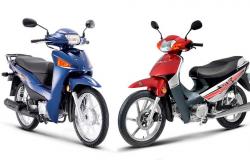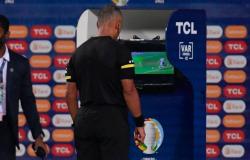The president of Mercedes-Benz Iberia, Reiner Hoeps, considers public aid necessary to extend electric mobility.
There is consensus in the automotive sector that the electric car will be the dominant technology in the future. The speed of this transformation is not so clear, nor is there visibility on the deadlines. He thinks so Reiner Hoepswhich starts unew stage in Spain as president of Mercedes-Benz Iberia.
The manager, in a meeting with the media, commented on the global decision of the German automobile group to rethink your electrification strategy. Hoeps highlighted the need to be flexible in meeting customer demands and noted that the company will extend the life of some of its combustion models.
“The electric car will be mainstream“normal on the street, the only thing that needs to be determined is the speed of this transformation,” stressed Hoeps, who added that there are factors that have led Mercedes-Benz to take this approach, such as a slower development than expected. expected of the charging infrastructure or the decision of Germany to remove purchasing aid.
Hoeps reaffirmed the German car manufacturer’s commitment that 50% of its global sales correspond to models electric and plug-in hybrids by 2030, although in Europe some countries already meet that ratio. Thus, he confirmed that Mercedes-Benz will continue selling combustion cars in the 2030s and pointed out that a wide range of technologies must be offered to the customer so that they can choose based on their needs.
“We have many very good cars that are not 100% electric. We have contributed to combustion engines having a bad image, even though the diesel current is fantastic and clean,” he said.
Purchase incentives
On the other hand, the first executive of Mercedes-Benz in Spain and Portugal confirmed that if the objective is to create a dynamic in the market towards electrification, a public support by governments to make this a reality.
“Today, without public incentives it is very difficult if you want to achieve the objective of electromobility in the planned times,” the manager said, while adding that the cost of electric cars will continue to be above that of combustion models for “several years.”
Hoeps also highlighted that Mercedes-Benz is going to continue reinforcing the exclusivity of its models, in what may seem like a response to the offensive by Chinese brands. Thus, he confirmed that at the moment the company does not have a plan to launch a successor to the current one. A classcompact in size, which is a model that is almost exclusively sold in Europe and is difficult to make profitable.
Regarding the evolution of his company for this year, the president of Mercedes-Benz Iberia He pointed out that the star brand plans to achieve registrations in Spain of around 45,000 units at the end of this year, which will mean an improvement of almost 5% compared to the nearly 43,000 units delivered last year.
Vitoria Plant
The Mercedes-Benz group operates a plant in Spain, located in Victoria, which will receive an investment of around 1,000 million euros for the incorporation of a new electric vehicle platform. Thus, the company will produce a new generation of electric vans for the entire world in this center.
Hoeps pointed out that this strong investment in Vitoria confirms the group’s commitment and confidence in this plant and also what Spain represents for the consortium’s industrial network around the world.
In this sense, he recalled that Mercedes-Benz received 130 million public incentives within line B of the second Part of the Electric and Connected Vehicle (VEC) for said project and does not rule out that the plant may submit to future Perte VEC calls in relation to other initiatives.





